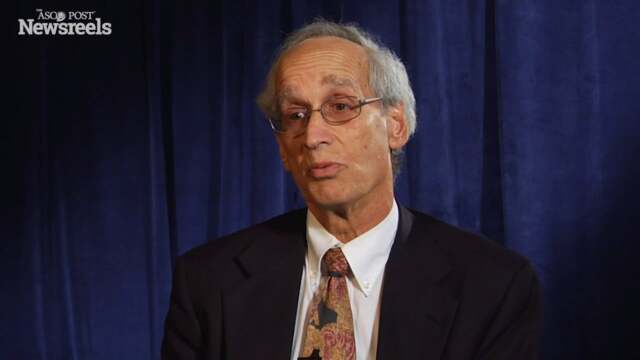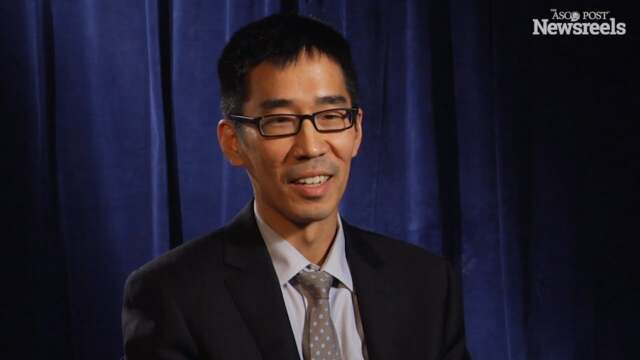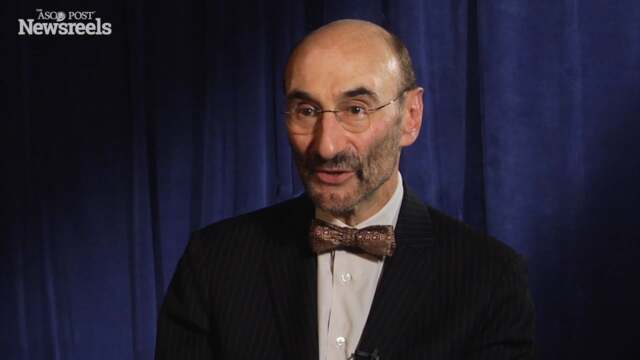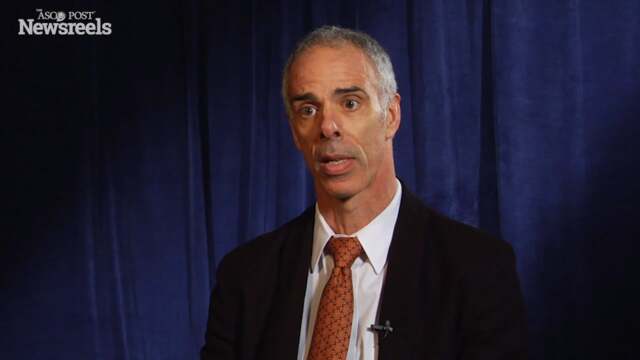Howard M. Sandler, MD, on Prostate Cancer: Results From RTOG 0415
2015 ASTRO Annual Meeting
Howard M. Sandler, MD, of Cedars-Sinai Medical Center, discusses this phase III noninferiority study comparing two fractionation schedules in patients with low-risk prostate cancer (Abstract LBA6).
Joel E. Tepper, MD
Joel E. Tepper, MD, of the University of North Carolina School of Medicine, discusses the ways in which SBRT has changed radiotherapy, as demonstrated in key studies presented at this year's meeting on stereotactic body radiotherapy for liver metastases and hepatocellular carcinoma, and borderline resectable and unresectable pancreatic tumors (Abstracts 253, 255, 351, 357).
James B. Yu, MD
James B. Yu, MD, of Yale School of Medicine, summarizes the plenary lecture on results from the NRG Oncology/phase III study comparing two fractionation schedules for low-risk prostate cancer (Abstract LBA6).
Anita Mahajan, MD
Anita Mahajan, MD, of MD Anderson Cancer Center, summarizes results from three clinical trials on radiation therapy for ependymoma, locally advanced thoracic esophageal squamous cell carcinoma, and meningioma (Abstracts 31, 1, 7).
Bruce Minsky, MD
Bruce Minsky, MD, of MD Anderson Cancer Center, discusses two important papers: results from a prospective trial on quality-of-life outcomes for low-risk HPV-associated oropharyngeal squamous cell carcinoma, and a prostate cancer radiation therapy study (Abstracts 3, 4).
Anthony Zietman, MD
Anthony Zietman, MD, of Massachusetts General Hospital, discusses the practice-changing results from a study comparing fractionation schedules in patients with low-risk prostate cancer (Abstract LBA6).





